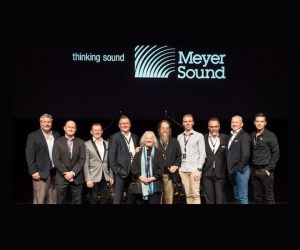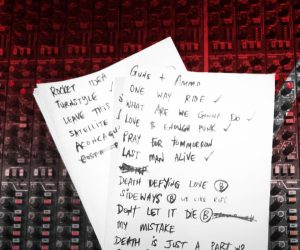
Cracking the USA
Wanna crack the American market? Well, join the queue. Hundreds of Australian bands and artists have headed to The States over the years only to crash and burn. Christopher Holder learns more about a government initiative that sways the odds slightly more in your favour.
For many Australian artists, making it big in the US remains the holy grail. But the world’s biggest music market has always been the toughest nut to crack. Breaking into The States requires enormous talent, enormous dedication and enormous luck… and even then the odds are stacked against you. The history of Australian music is littered with big-name domestic acts that have left these shores with gig bags full for high hopes only to return months later with their tails between their legs.
In a surprisingly forward-thinking move, Austrade (the Australian Government’s export development department) has opened a ‘Music Office’ in the US. The office aims to assist musicians to create successful ‘entry strategies’ into the giant US market.
Heading up the department is the newly-appointed Los Angeles-based Music Development Manager, Tony George. As you’d expect, Tony is a Yank, and he’s an industry veteran having done stints for Geffen and A&R for Interscope – so he knows his onions.
US FORCES
Christopher Holder: Australia’s had a very chequered history of bands that are huge locally and gone to the US with great optimism and failed miserably. What’s been going wrong?
Tony George: I think there have been a number of factors. The biggest factor is the competition from bands all over the world trying to make it in the US market. Also people tend to forget that there are 10 times the number of American bands that have been huge in their native city and failed in their attempt to go national. The odds are stacked against you regardless of where you’re from – including Americans.
That said, there are definitely some additional hurdles to be overcome by Australian artists. One of the problems is the fact that they’re so far away. And it’s so expensive to get over here. It’s difficult for an artist who’s a superstar in Australia – used to sleeping in five-star hotels and making a lot of money – to come over to the US and start from scratch… sleeping in cheap hotels and on people’s couches… that’s sometimes been a factor. And just the work it takes to make a success of it here – you have to spend a lot of time here. You’re a long way from home – it’s a long time to be away from family and friends – so it can be difficult emotionally. Sure, there are some minor cultural differences to do with why some music doesn’t translate so well. The same applies to music from the UK. Take Robbie Williams, for example, he’s a superstar all over the world but doesn’t work over here. Conversely some hip hop in the US just doesn’t work in the rest of the world. It’s difficult to generalise, but there’s no doubt that it’s difficult, and it’s a lot of hard work.
CH: Record companies don’t exert the same stranglehold on the music business as they once did. Is the changing landscape of the music biz offering more opportunities to recording artists, or is it just more difficult without that corporate support to crack The States?
TG: There are definitely huge opportunities available. The elimination of the costs of distribution is a great advantage, especially for international artists. Then there are online organisations and retailers like CD Baby doing huge things and iTunes is obviously a big story. The music market isn’t shrinking, and once the file sharing issues are taken care of people will realise the ease and beauty of digital distribution. I’m sure we’ll see another expansion of the market like we did when people moved from records to CD – possibly an even bigger expansion. People don’t like to go to record stores so much anymore. That’s why Starbucks is such a huge story in music distribution. Music is becoming more available at the moment you want it, and I think it’ll bode well for the industry.
CH: Presumably I need to have a few runs on the board before the Music Office can assist me? What do I need in place as an artist or band before I can give you a call?
TG: If you’re at the bottom rung and putting a demo together then we can offer you a few simple tools to help you out. Those tools will be on our website [see Online Resources for more].
To really assist, you need to have some infrastructure in place – a commercial release, completed some touring, and the financial means to get out to America. It’s difficult for me, as one man, to get a buzz started, but if there’s already a buzz going on then I can be very helpful – doors opens much more easily if there’s a ‘story’ to tell. But in terms of opening doors to label people, potential managers, an attorney, a booking agent, or a publishing company… a band is going to have to have some work done.
But it’s not all about getting artists out to America from Australia. We can assist in the licensing area – which is potentially lucrative and feasible. You don’t need to leave Australia and you don’t even need to be in a band or have a profile.
We’ve also launched an Australian Music MySpace page. In the three weeks that we’ve been up, we’ve had about 650 Australian bands signed up. Traffic and demand has been brisk. We hope to do a lot on that site.
CH: For those not familiar with MySpace, can you explain that some more?
TG: In The States MySpace is the biggest story of the year in terms of artist development – bands are getting signed off of MySpace. It’s an online community with something like 22 million members – bigger than the population of Australia. I don’t know how many thousands of bands are on there but there are tens if not hundreds of thousands. The public can come on there and become ‘friends’ of a band. Really big bands like Wheezer for example has 50 or 70,000 friends. The friends can all be alerted to when you do something. It’s a viral networking environment. We’ve got our own page up there, just focusing on Australian music – we’ll put a different Australian band or artist up there every two weeks.
CH: Seems like Australian country music is doing well in The States of late. Are there genres that are more obviously conducive to crossing over to The States?
TG: I think so. There are genres of music that are going to have more credibility, and ‘credibility’ is often what it’s all about. Australian rock and pop music has had credibility since AC/DC… and even earlier. And, with the huge success of Keith Urban, Tommy Emmanuel and the like, Australian country music is quickly gaining credibility. Nashville has traditionally been a pretty closed city – you have to be there to be accepted. But with Australian success there have been a lot of doors opened up. I certainly see more opportunities opening up for country artists from Australia.
CH: Home grown hip hop is gaining momentum here. What are our export chances in that genre?
TG: I’m not so optimistic. I can’t think of too many international hip hop artists that have done well in The States. It’s the hardest. It’s all about credibility. Certain underground hip hop – that can work, but for the mainstream it’s a pretty closed market. It’s all about the crew you’re from, who’s producing you, who you know, who’s on your record. I’d say it’s more difficult.
CH: From here it seems that US radio is a closed shop. How important is airplay?
TG: Commercial radio is the domain of signed artists and it’s big money to get on the radio. For an unsigned Australian artist I wouldn’t even bother with commercial radio. I would go for college radio. I think that is possible. That, and public radio… definitely.
CH: Okay, here’s the $64,000 question: if I have some commercial success and a management deal and/or record deal, what can you do for me over and above what my manager could achieve with a few phone calls?
TG: First up, I like to take direction from your manager, that way I can fill in holes that the manager’s not covering. For example, it might be to help book gigs, or you might need a booking agent when you come over the US, or we might invite agents over. You may be looking for co-writers and I can make some phone calls if you’re in town. If you’re at the point where you’ve got label interest in the US, then I could shop your stuff around. Or, it could be ideas for referrals to a marketing company or a publicist or places for CD duplications… You might need a studio… backline… other touring aspects like a tour manager when you’re over here. It could be help with the export development grants that we give here. It might be advice for film and TV placement. And, although I’m not an attorney, it could even be advice on how to structure deals. Or just creative advice – you might want my opinion about your music.
CH: Sounds like an open invitation for our readers to send you their demos!
TG: I’m hoping not to get inundated I’m the only full-time guy here at the Music Office, and the more time I can spend on acts that are ready, then the better it is for everyone. If you want some direction about selling to The States then check our website. If you’ve got all those things going on that I’ve mentioned then the next step would be to contact your local Austrade office. I think that’s the best way to proceed.
Austrade’s Export Music Office: 132 878 or www.austrade.gov.au
















RESPONSES